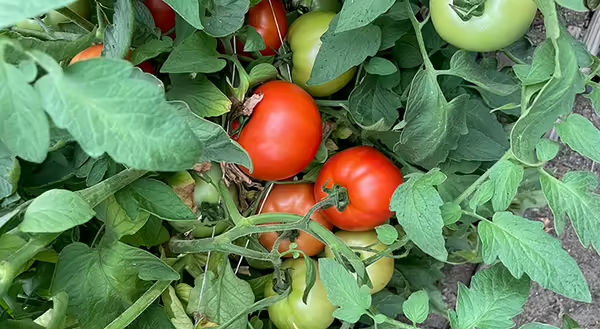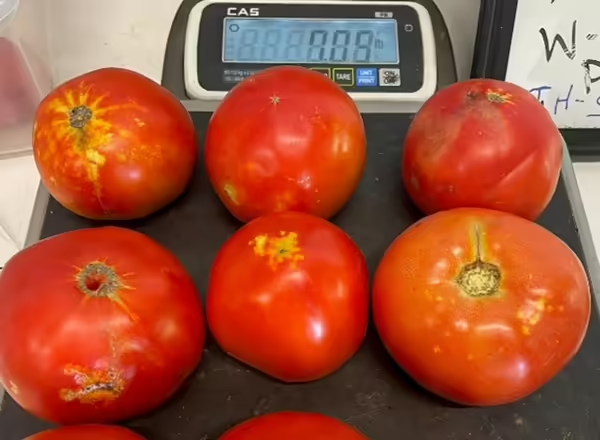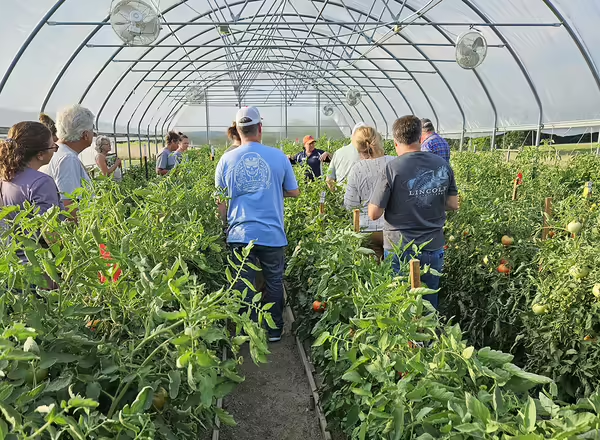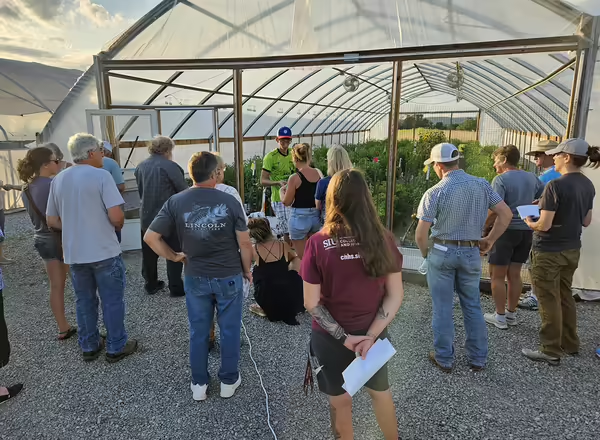
As with other locations across the state, the extremes in weather have been felt in far southern Illinois as well. From dangerously high temperatures and heat indexes and drought conditions of a couple of weeks ago to more tolerable summertime temperatures and significant rainfall events within the last few days, most of the area has seen a drastic, and in most cases, much needed change in soil moisture. Some portions in the very southern tip of the state experienced flash flooding events due to rainfall totals exceeding 8” in a 24-hour period. Later sweet corn plantings and other perennial crops will definitely benefit from the much needed rain.
We are continuing to harvest tomatoes, peppers and cut flowers from the tunnels included in our ongoing research project, Strategies for Improving Biological Control of Insect Pests for Vegetable Growers Utilizing High Tunnels. While the majority of the tomato crop load was harvested during the second and third weeks of July, there is still a lot of fruit remaining to be harvested from the plants. Peppers have been harvested weekly as well, with the two larger harvest weeks being the first and third weeks of July. Cut flowers are also being cut weekly and second plantings of stock and sunflowers have also been made.

In order to get a sense of how much insect pest pressure is occurring in the high tunnels, fruit that shows signs of insect feeding is sorted by insect, counted and weighed. In this photo, those fruit show symptoms of stink bug/stilt bug damage. This will be compared to the total marketable yields from the plots and should provide a percentage of fruit impacted by the insects.

On July 13, we hosted 30 participants at the high tunnel production field day at DSAC. During the evening, local USDA FSA and NRCS staff shared information about programs beneficial to new and beginning farmers, including the microloan and high tunnel EQIP programs. General information on high tunnel structures, layout and overall vegetable production information was shared by DSAC extension staff.

Kacie Athey provided an update on her current insect research projects as well as an overview of findings from research conducted the previous two years within high tunnels across the state. Graduate students from University of Illinois working on ways to automate routine high tunnel operations through the use of AI-powered robots also attended the field day. They discussed how they are trying to program robots to harvest fruit and make very targeted sprays on insect pests. They brought two different robots to demonstrate the movements and how this technology could be beneficial to growers in the future. Very interesting concepts for sure.
Author: Bronwyn Aly, local food systems and small farms educator at Dixon Springs in southern Illinois.